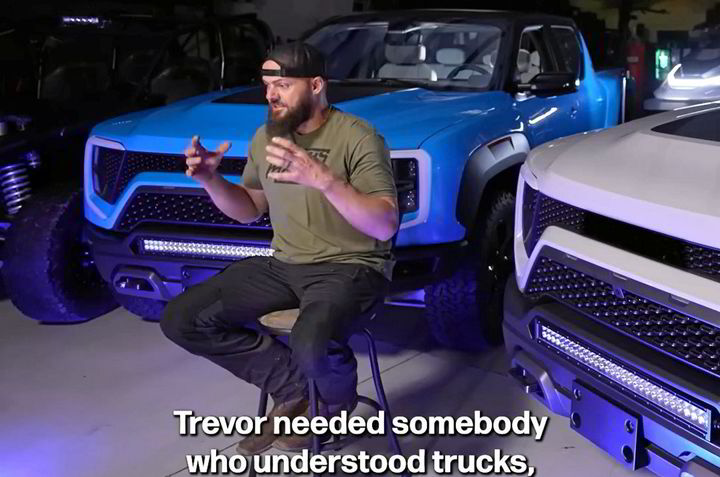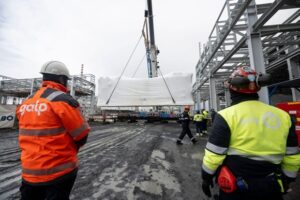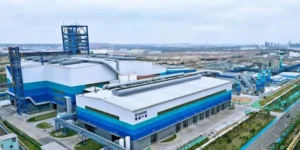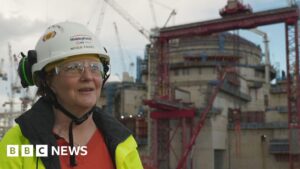Hydrogen truck maker Nikola Motors sues disgraced former CEO, a TV personality and a company it partly owns

It may sound like an April Fool’s joke or the script of a hard-to-believe soap opera, but hydrogen truck maker Nikola Motors has unintentionally managed to get itself into another strange legal battle with its disgraced former CEO Trevor Milton — and this time the convoluted plot involves a TV personality, a conspiracy theorist and a Badger that was formerly thought to be extinct.
Let’s start the story with a flashback to 2020, when company founder and then CEO Trevor Milton announced that Nikola would build a hydrogen-electric pick-up truck called the Badger, for which it rapidly took more than 6,000 orders (in the form of reservations).
In September of that year, the US Department of Justice and the Securities and Exchange Commission (SEC) began investigating Milton and Nikola over claims of securities fraud and he soon resigned as head of the company.
Milton was convicted in October 2022, and finally sentenced to four years in prison last December in a surreal court hearing where he claimed to have had an arm cut off in Brazil, compared himself to an African-American boxer who was wrongfully convicted of murder in 1967 and spoke about his mother’s visits to Heaven, where she saw colours that don’t exist on Earth.
By the end of November 2020, Nikola had scrapped the Badger programme because it would have cost “billions of dollars to engineer, validate, produce and distribute”, according to the company, and all deposits for the vehicle were returned to would-be customers.
Unbeknownst to investors, Nikola then began negotiating an agreement to sell the rights to the Badger and the company’s other “powersports” assets — namely an off-road utility terrain vehicle (UTV) and an electric jet ski — to a company called EMBR that is majority owned by a TV personality known as Heavy D and his legal partner, Cole Cannon.
Article continues below the advert
Heavy D — real name Dave Sparks — rose to fame in the Discovery Channel reality television series Diesel Brothers, in which he and his friend “Diesel Dave” repaired and customised pick-up trucks, including modifying vehicles to emit highly polluting black smoke from their exhausts as a kind of raised middle finger to environmentalists — for which Sparks was later fined under the Clean Air Act.
Sparks — who now has millions of social media followers — describes himself as a “good friend” of Milton’s, not least, perhaps, because Milton gave him 500,000 shares in Nikola when he quit as CEO and executive chairman in 2020.
It was revealed in February that in the summer of 2023, Nikola completed the deal to transfer the intellectual property of the Badger and powersports assets to EMBR in a deal “that allowed EMBR to purchase the assets on a note, with no money down, to be paid back to Nikola over time”, Nikola’s chief legal officer Britton Worthen revealed during a financial results conference call on 22 February this year.
EMBR intends to resurrect the Badger and sell the vehicle as originally intended — with an electric battery and a hydrogen fuel cell that would give it a 600-mile (966km range).
Worthen added: “Nikola retained a 30% interest in EMBR, which lowered the note payable owed back from EMBR, allowed Nikola to retain some value for its shareholders if the assets were ever developed into anything worthwhile, and allowed Nikola to claw back 500,000 shares that were given by Mr Milton to Mr Sparks as part of Mr Milton’s departure from the company.”
As part of the deal, Milton could not be directly or indirectly involved with EMBR, because Nikola “felt strongly that he had caused enough reputational, financial and operational damage to Nikola”.
Two days earlier, Nikola shareholder M&M Residual nominated five “highly qualified and independent director candidates” for election to Nikola’s nine-member board of directors, including Heavy D and Cole Cannon, in a statement filed to the SEC.
This was seen by the truck maker as an attempt by Milton “to take control of Nikola”, which it described as “an irony… not lost on us at the company”.
“We will continue to push back against any efforts he makes to attempt to take control of Nikola,” said Worthen, “and we believe that our directors and management are far and away better for our stockholders than a slate of directors who lack relevant experience to run a clean energy clean tech company”.
Sparks’ ties to Milton remain strong, telling his five million Facebook followers last month that his “good friend” Milton was wrongly convicted and that this can be proved by a social media post written by a self-confessed conspiracy theorist called Jessica Reed Kraus, who believes convicted sex offenders Harvey Weinstein and Ghislaine Maxwell are innocent and is now putting her efforts into getting anti-vaxxer Robert F Kennedy Jr elected as US president.
Sparks’ argument is basically that he has known Milton for a long time, he’s a great bloke, and that the share price of the company has slumped since he left the company, therefore proving that those currently in charge of Nikola don’t know what they’re doing, and that Milton did.
Of course, this ignores the fact that Nikola shares slumped precisely because of Milton’s securities fraud, which were revealed on 10 September 2020 by short seller Hindenburg Research, which exposed many of the lies underpinning Nikola’s artificially high stock price, the US government later said in court.
Milton was convicted in October 2022 of making repeated false statements to investors in order to induce them to buy Nikola’s stock, including infamously faking a working prototype of the Nikola One hydrogen semi truck in 2016, presenting a video of it apparently running under its own power when it could not and was actually rolling downhill.
The government said that total investor losses as a result of Milton’s fraudulent statements amounted to $660m-673m.
Sparks told his followers that Hindenburg only made its statement about alleged Nikola fraud because it stood to benefit financially from doing so — despite the fact that its claims were supported in court.
And the former TV mechanic added that claims in court that Badger prototypes were little more than reworked Ford trucks were not true, with the “great majority” of the two prototypes “designed, engineered and fabricated by Nikola”.
Nikola now has more than $2.4bn of debt, and Milton legally owes the company $165m for his wrongful conduct while in charge of the company — an award confirmed in federal court.
Milton is out on bail, pending an appeal into his conviction, and he is also fighting the $165m civil penalty.
On Friday, Nikola filed a statement to the SEC, which stated “it is clear via social media and SEC filings that these provisions of the agreement [ie, EMBR’s agreement to have zero involvement with Milton] were not adhered to, and as a result legal action is being taken against EMBR, Mr Cannon and Mr Sparks, as well as Mr Milton”.
“The Nikola team will aggressively pursue its rights and continue our mission to decarbonize the trucking industry.”
A day earlier it had filed suit against EMBR Motors, Trevor Milton, M&M Residual, Cole Cannon and Dave Sparks in the US district court for Arizona, accusing the defendants of breaching the spin-off contract, violating securities laws, trademark infringement and civil conspiracy.
“Milton has recruited a slate of unqualified confederates to stand as candidates for Nikola’s Board of Directors at the next annual meeting,” while filing proxy materials that contain false statements, Nikola alleges.
The complaint adds: “Milton seeks control of Nikola for his own financial gain. Shortly before he launched his proxy fight, Nikola obtained a $165 million arbitration award against Milton. If he is able to regain control of the company Milton will undoubtedly attempt to undermine Nikola’s efforts to collect the award against him.”
In statements to the SEC, Nikola has stated that there are continuing doubts over whether the company can remain a going concern over the coming 12 months.
However, it was finally able to start serial production of its Tre FCEV model in September last year — seven years after Milton’s team had faked a working prototype.







